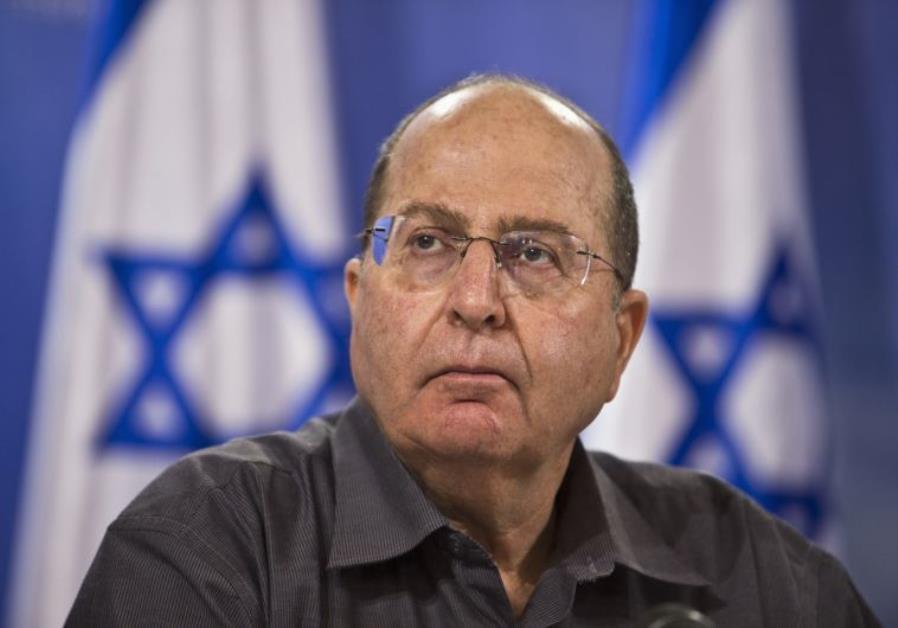Former Israeli Defense Minister Moshe Yaalon met with Syrian rebels

Former defense minister Moshe Yaalon. (photo credit: REUTERS)
Former Israeli Defense Minister Moshe “Boogie” Yaalon met with Syrian rebels during his tenure in order to examine their requests for humanitarian aid during the country’s civil war, sources confirmed to The Jerusalem Post.
The source confirmed that following the meeting between the three representatives and Yaalon, who was defense minister between March 2013 until May 2016, Israel began providing humanitarian aid to residents of the Syrian Golan Heights in an IDF operation known as Good Neighbor.
According to a report by Haaretz, Maj.-Gen. Gershon Hacohen, a former IDF General Staff Corps commander who retired in September 2014, said during a conference put on by Israel Democracy Institute that he was with Yaalon when the meeting took place. He did not say exactly when the meeting occurred.
“When I was commanding a corps in the Golan and Bogie [Ya’alon] was defense minister, we sat with three Syrian activists from the other side, from Syria,” Hacohen was quoted as saying.
“They came and Bogie wanted to understand who they were. He asked one of them, ‘Tell me, are you a Salafist?’ And he said, ‘I really don’t know what a Salafist is. If it means that I pray more, then yes. Once I would pray once a week, on Fridays, now I pray five times a day. On the other hand, a Salafist isn’t meant to cooperate with the Zionists. I’m sitting with the defense minister of the Zionists. So I don’t know.’ This means that identity components are very fluid. They don’t tell you where the person is going.”
With the goal of increasing aid given to Syrian civilians in villages near the border, the IDF acknowledged Operation Good Neighbors in June 2016.
In addition to a field clinic which treated an estimated 7,000 Syrian children before being closed in early August, another 4,900 Syrians were treated in Israeli hospitals. Several women also gave birth at Nahariya Western Galilee Hospital.
Those who arrived at the border were both combatants and civilians, and according to officials some 70% of the wounded treated by Israel were men of fighting age while the other 30% are women and children.
Most were transported by ambulance to Nahariya’s Galilee Medical Center (70%) or Ziv Medical Center in Safed (20%); others are treated in hospitals in the center of the country such as Sheba Medical Center.
The operation has involved the provision of food, clothing, fuel, diapers and hospital equipment,
With Israel transferring 630 tents, 40 vehicles, 20 generators, an estimated 1,100,000 liters of fuel, approximately 26,000 palettes of medical equipment and medicine, 1,700 tons of food, 49,000 packages of baby food and 8,200 packages of diapers, and 350 tons of children’s clothing.
Another 20 mobile caravans to use as clinics or classrooms were also given to Syrian civilians with the help of the IDF.
The operation officially ended last week following the reoccupation of the Syrian Golan Heights by the regime of Syrian President Bashar al-Assad in September seven years after losing it to rebel groups.
Join Jerusalem Post Premium Plus now for just $5 and upgrade your experience with an ads-free website and exclusive content. Click here>>






Comments are closed.